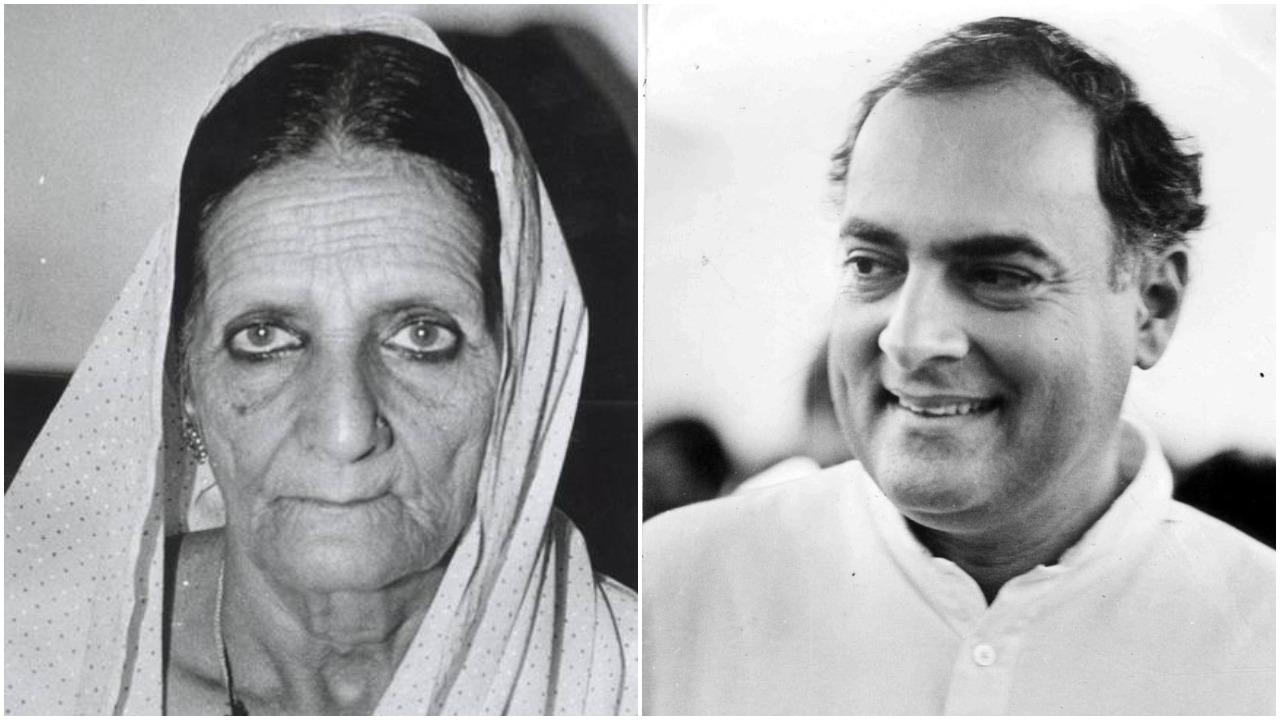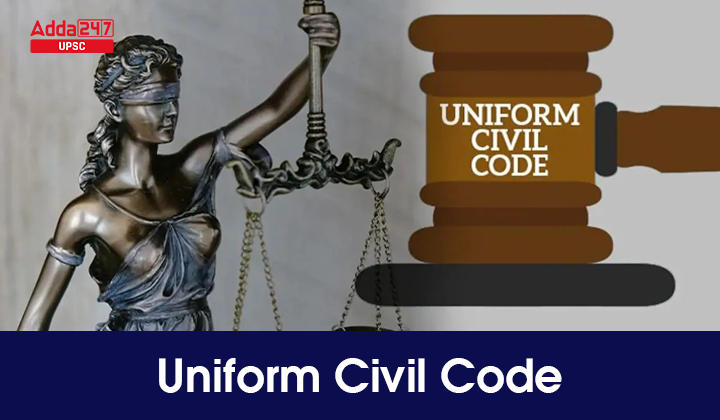Table of Contents
Uniform Civil Code (UCC) is a proposal to establish a single set of personal laws that would apply uniformly to all individuals in India, regardless of their religion, ethnicity, or gender. The implementation of a UCC has been a subject of extensive debate and disagreement within the nation. Proponents believe that a UCC – Uniform Civil Code would promote equality and social justice, while opponents express concerns that it may encroach upon religious freedom and disturb communal harmony.
Why Uniform Civil Code in News?
Nine months before the election for the Lok Sabha in 2024, Prime Minister Narendra Modi has been advocating for a Uniform civil code. Since questions of personal law are included on the Concurrent List, the Union government had the opportunity to take the initiative and draught the relevant laws.
What is Uniform Civil Code?
A set of personal laws that apply to all citizens of a country is what is called the “uniform civil code.” For instance, in present-day India, several personal laws are specific to Muslims and Hindus. Property law, marriage and divorce, inheritance law, and succession law are all aspects of personal law.
Article 44 of the Constitution of India includes a provision for a Uniform Civil Code as a Directive Principle of State Policy. This clause reads that “The State shall endeavor to secure for the citizens a uniform civil code throughout the territory of India.
Uniform Civil Code in India
The Constitution of India guarantees the right to freedom of religion, and personal laws in India are based on the religious practices of each community. The UCC – Uniform Civil Code has resulted in different personal laws governing marriage, divorce, inheritance, and adoption for different communities, such as Hindus, Muslims, Christians, and others. The existence of these distinct personal laws has often created conflicts and inequalities, particularly in cases of divorce, alimony, and inheritance.
Evolution of Uniform Civil Code
In the early 20th century, women’s rights, equality, and secularism advocates demanded a Uniform civil code (UCC). Until 1947, a few laws improved women’s lives, especially Hindu widows.
Indian Parliament enacted Hindu Code Bill in 1956 against resistance. Due to considerable opposition, Prime Minister Jawaharlal Nehru, his followers, and women campaigners had to compromise by adding a Uniform civil code to the Directive Principles of State Policies.
In 1985, the Shah Bano case caused India’s Uniform civil code to become a political flashpoint.
Uniform Civil Code Case laws
- Sarla Mudgal v. Union of India (1995)
In the 1995 case of Sarla Mudgal v. Union of India, the Supreme Court ruled that a Hindu Husband cannot convert to Islam and then remarry without first dissolving his first marriage.
Additionally, it claimed that a UCC would stop bigamous marriages and fraudulent conversions of this nature.
- Shayara Bano v. Union of India (2017)
In the Shayara Bano v. Union of India case, the Supreme Court ruled that triple talaq violates Muslim women’s equality and dignity and is therefore unconstitutional.
It also suggested that legislation governing Muslim marriages and divorces be passed by the Parliament.
Need for Uniform Civil Code
- Encourages True Secularism
In India, we currently practice selective secularism, meaning that in some contexts, we are secular, and in others, we are not. All Indian citizens must abide by the same rules, regardless of their religious affiliation, whether they are Sikhs, Christians, Muslims, or Hindus that is righteous and secular. A uniform civil code is one step forward in establishing real secularism in India.
- More Rights for Women
Our patriarchal and misogynistic society condemns all Indian women to subjugation and mistreatment by permitting archaic religious traditions to dictate family life. A universal civil code will assist change these outdated traditions that don’t belong in a society that values women’s rights.
- Modern countries have it
A progressive nation has a Uniform civil code. The nation has moved away from caste and religion politics. We are neither modern nor traditional anymore. India will progress towards development with a Uniform Civil Code.
Challenges in the implementation of UCC
- Lack of Political Will and Consensus:
The administration, the legislature, the judiciary, and the civil society do not have the necessary political will or consensus to start and execute UCC.
- Concerns of different groups
Religious and minority groups oppose UCC because they see it as a violation of their right to religious liberty and cultural autonomy.
They worry that the UCC will impose a majority- or homogeneous law that will ignore their variety and sense of self.
The drawback of the Uniform Civil Code
- Diversity issues in India
Our nation’s diversity makes Uniform Civil Code adoption difficult. Cultural differences between states and communities also prevent a uniform personal law.
- State interference in personal matters
A person has the right to practice any religion of their choosing, as guaranteed by the constitution of India. The extent of the freedom of religion will be narrowed as a result of the formulation of uniform rules and the imposition of these laws.
- Against people’s will
People from various cultures do not want to embrace secular laws that are distinct from personal laws. Therefore, forcing one group’s traditions on another group is unfair. The emphasis should be placed on other, less divisive challenges that Indian society is dealing with.
- General laws
The country has established fundamental principles for the safeguarding of human rights and social responsibility through general laws. For instance, there is a general rule that prohibits child marriage and reigns over all personal laws.
Merits of Uniform Civil Code
If a Common Civil Code is adopted and put into effect:
- It will aid and accelerate national integration.
- Conflicting legal provisions could be avoided.
- Litigation arising from personal legal matters would decline.
- Unity and the national spirit would be rekindled.
- the nation would reawaken with new strength and power to face any challenges and eventually vanquish the communal and the divisionist forces.
Uniform Civil Code Way Forward
- Unity and uniformity
The suggested UCC ought to acknowledge India’s diversity and pluralism. To respect cultural variations, the Indian Constitution permits both integrationist and constrained multicultural methods.
- Discussions and negotiations with concerned parties
Including a wide range of stakeholders, including community representatives, legal professionals, and religious leaders, in the creation and implementation of the UCC. This could make sure that the UCC is viewed as fair and genuine by all citizens and that it takes into account the various viewpoints and requirements of various groups.
- Striking a Balance
The Law Commission should focus on removing only those practices that do not adhere to the norms outlined in the Constitution. The Commission ought to refrain from encouraging reactionary culturalism among various communities.
The primary focus should be on the development of a just code that encourages equality and fairness
Uniform Civil Code Proponents
Proponents of UCC argue that it would provide a common legal framework for all citizens and promote gender equality and social justice. They argue that the current system of personal laws is discriminatory and violates the principle of equality enshrined in the Constitution. UCC would ensure that all citizens, regardless of their religion or gender, have equal rights and responsibilities under the law.
Uniform Civil Code Opponents
Opponents of UCC argue that it would violate the principle of religious freedom and communal harmony. They argue that personal laws are an essential aspect of religious identity and that any attempt to impose a uniform set of laws on all citizens would undermine the diversity and pluralism of Indian society. They also argue that UCC would be a threat to the cultural and religious traditions of different communities, particularly those of minority communities.
Should the Uniform Civil Code be implemented?
The debate on UCC has been ongoing for many years, with various committees and commissions being set up to study the issue. The most recent attempt to implement UCC was in 2017 when the Law Commission of India released a questionnaire seeking public opinion on the issue. However, the proposal met with opposition from various religious groups, and the government has not taken any steps to implement UCC.
In conclusion, the idea of a Uniform Civil Code has been a subject of debate and controversy in India for many years. While proponents argue that it would promote equality and social justice, opponents claim that it would undermine religious freedom and communal harmony. The issue is complex, and any attempt to implement UCC would require careful consideration and consultation with all stakeholders. Ultimately, any decision on UCC should prioritize the principles of equality, social justice, and religious freedom, while ensuring that the diversity and pluralism of Indian society are respected and preserved.
Uniform Civil Code History
- A unified civil code has been discussed since India was a colony.
- The East India Company (1757–1858) attempted to alter Indian social and religious norms before the arrival of the British by imposing Western beliefs on the country.
- The October 1840 Lex Loci Report emphasized the need for uniformity in the codification of Indian law with regard to crimes, evidence, and contracts but suggested that the personal laws of Hindus and Muslims be kept apart from such codification.
- The British Empire’s “Divide and Rule” strategy, which allowed them to break down the solidarity among the many communities and control India, included the legal division of Hindus and Muslims.
- The British divided this area, which would be ruled by the texts and practices of the various communities, in accordance with their view of religious differences in India (Hindus, Muslims, Christians, and later Parsis).
- When resolving routine civil conflicts involving members of the same religion, local courts or panchayats would apply these laws; the State would only get involved in extreme circumstances.
- In many Hindu and Muslim communities, they were occasionally in conflict; such examples were found in communities like the Jats and the Dravidians; as a result, there was diversity throughout the nation in preference for scripture or customary regulations.
- Shudras, for example, permitted widow remarriage, which is absolutely against Hindu dharma as it is written in the scriptures.
- Due to the relative simplicity of the Hindu laws, the desire of British and Indian courts for such a Brahminical system, and their concern about high caste Hindus’ opposition, the Hindu laws gained favor.
- Customary rules were more difficult to put into operation since it was challenging to individually investigate each unique practice of every community.
- In favor of local opinion, the acknowledgment of unique customs and traditions grew around the end of the nineteenth century.
Uniform Civil Code Significance of Shah Bano case
Until the Shah Bano case in 1985, there was a less frequent debate between secular and religious authorities on the need for a uniform civil code. Bano, a 73-year-old woman, asked her husband Muhammad Ahmad Khan for maintenance. After 40 years of marriage, he granted her a unilateral divorce through triple Talaaq and refused her ongoing maintenance.
The Muslim Personal Law permits this type of discriminatory divorce against women. She first received maintenance after a local court’s 1980 decision. Khan, who is a lawyer, appealed this judgment to the Supreme Court, claiming that he had complied with all of his legal requirements in accordance with Islamic law.

Shah Bano received a favorable decision from the Supreme Court in 1985 under the All India Criminal Code’s “maintenance of wives, children, and parents” provision (Section 125), which was applicable to all residents regardless of religion. It also suggested that a standard civil code be established. In addition to her case, two other Muslim women had previously received maintenance in 1979 and 1980 under the Penal Code.



 TSPSC Group 1 Question Paper 2024, Downl...
TSPSC Group 1 Question Paper 2024, Downl...
 TSPSC Group 1 Answer key 2024 Out, Downl...
TSPSC Group 1 Answer key 2024 Out, Downl...
 UPSC Prelims 2024 Question Paper, Downlo...
UPSC Prelims 2024 Question Paper, Downlo...




